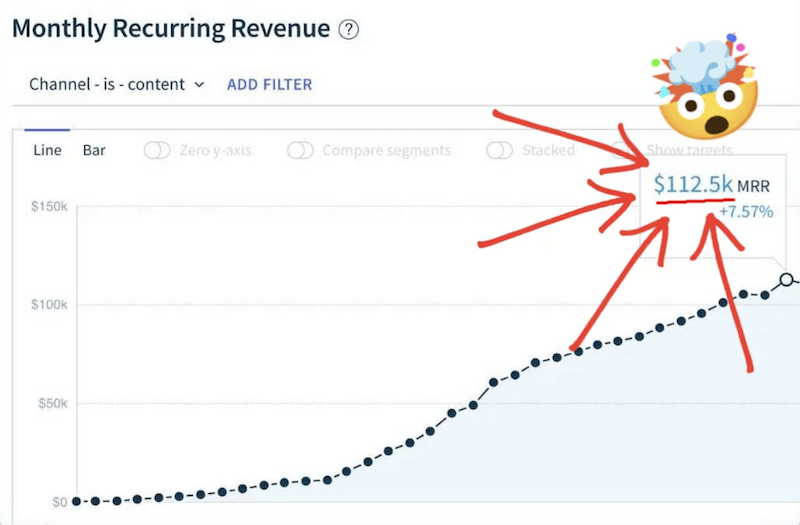What is a trading bot?
A trading bot is like a smart robot that buys and sells things for you to make money. It follows rules you set up beforehand, so it can trade quickly and help you get the best deals without you having to do all the work, 24/7.
Trading bot fast facts
Trading bots automate trades but don't guarantee profits, with success varying with the chosen strategy and market conditions.
Top bots like "3Commas" offer complex strategies, while "Pionex" provides 16 free built-in bots for a more simplified approach.
Making consistent money with bots is tricky, depending on the bot's quality, strategy, and the market's volatility.
Costs range from free options like Pionex to subscription-based models such as 3Commas, starting at €5/month.
Coinbase supports third-party bots like Bitsgap and 3Commas through APIs, enabling automated crypto trading on its platform.

A humanoid robot in front of a trading interface, a creative representation of AI's involvement in financial trading and market analysis. Photograph: Cwallet.
Do trading bots really work?
Trading bots are essentially programs designed to trade stocks automatically. They're beneficial because they can process information and execute trades much faster than humans. This speed is particularly useful in markets where quick decisions can lead to more profit. Bots constantly monitor multiple markets, executing trades based on predefined rules and strategies.
However, the effectiveness of trading bots can vary significantly. While they may perform well in certain market conditions, they don't guarantee success. Their performance largely depends on the strategies set by their users and how well they can adapt to market changes. Unlike humans, bots can't understand nuances or unexpected events, which can sometimes lead to losses. Additionally, the market has its share of overhyped and fraudulent bots, so it's essential to approach them with caution.
Trading bots can be powerful tools when used correctly and with a solid understanding of their capabilities and limitations. They're not a surefire way to profit but can be part of a well-rounded trading strategy. It's important to research and select reputable bots, continuously monitor their performance, and be prepared for both their advantages and potential pitfalls.
What is the best bot for trading?
"3Commas" is a well-known name in the trading bot space. It's recognized for its smart trading features and user-friendly interface. It allows traders to build sophisticated algorithmic trading strategies. It is safe to say that it is one of the best — if not the best — for crypto trading.
Pionex is another reputable platform for crypto bot trading. It has a range of automated trading bots, including a grid trading bot and a DCA bot, among others. It's known for its low trading fees (0.05% on profits) and offers 16 free, built-in trading bots that you can work with based on your strategy, risk tolerance, and trading goals.
For stock trading, there is Tickeron. Tickeron is an AI-powered market analysis platform that's been gaining traction among traders for its real-time trading algorithms, robust AI trading bots, and predictive analytics.

Pionex's homepage advertisement for its exclusive crypto trading bots. Photograph: Pionex.
Does anyone make money with trading bots?
Yes, some people do make money using trading bots, but the success largely depends on various factors including the choice of the bot, the strategy implemented, and the market conditions. A comprehensive look at different sources sheds light on both the potential and the challenges.
While trading bots can be profitable, it's not a guaranteed win. They work based on signals, such as entry and exit points and stop losses, using technical indicators to analyze the market. These bots are used across various markets including forex, stocks, and cryptocurrencies. Some traders have found success, but the outcome is as variable as the market itself.
It's essential to find a reliable bot and understand how to use it properly. The success of these bots can save time and provide more trading opportunities, but understanding their strengths and weaknesses is very important. There's no one-size-fits-all answer, and they require close monitoring and adjustment to align with one's trading style.
What is the success rate of trading bots?
The success rate of trading bots, particularly those enhanced by AI, can vary significantly. AI-enhanced ETFs such as QRFT, a form of automated trading, have shown promising results, outperforming the S&P 500 by an average of 5.91% over 5 years. These ETFs leverage algorithmic trading systems and technical indicators to make market predictions, demonstrating the potential of AI in long positions where markets are more predictable.
Profitability from AI trading is not just about outperforming indexes but also about managing costs. AI trading incurs costs either from investing in funds or purchasing direct trading software and bots. The balance between performance and costs is critical, with AI trading proving profitable when the returns outweigh the costs of AI software, which can average around $1.42/trade.

The New York Stock Exchange facade displays a QRAFT ETF banner, a new financial instrument that merges AI with trading. Photograph: QRAFT.
Is it illegal to have a trading bot?
The legality of trading bots hinges on regulatory compliance and market rules. In many jurisdictions, using a trading bot for algorithmic trading, technical analysis, and automated trading strategies isn't illegal. However, users must adhere to trading laws, market regulations, and exchange platform policies. Regulatory bodies in different regions, like the SEC in the U.S., set guidelines that must be followed to enforce fair trading.
Some trading bots might engage in practices considered illegal, such as market manipulation or insider trading. Make sure to conduct due diligence — your chosen trading bot needs to operate within the legal framework and doesn't employ prohibited strategies.
Finally, while most popular exchanges support API connections for legitimate trading bots, they may have specific rules and limits. Review your cryptocurrency exchange or trading platform's terms to stay on the safer side. It is worth noting that consulting a legal professional can provide clarity and help avoid unintentional violations, especially on a state level or overseas.
Do trading bots lose money?
Absolutely, trading bots can and do lose money. Even with the best algorithmic trading techniques and solid technical analysis, these bots aren't perfect. They're programmed to follow market trends and execute trades at regular intervals, but if the market goes sideways, the bot might not catch up quickly, leading to potential losses. It's the unpredictable nature of crypto markets and even traditional stock markets that can throw even the smartest bots off their game.
These bots are just software programs that follow pre-set rules. They don't understand context or sudden changes in market conditions like a human might. Whether it's a simple trading bot or one with an advanced trading automation strategy, there's always a risk. They operate in real-time, and sometimes the market just moves too fast or too irrationally for the bot to keep up.
So, while using a trading bot can open up new trading opportunities and help manage your trades, it's not a set-and-forget solution. Active monitoring, understanding the trading process, and being ready to adjust your trading bot strategy are key to minimizing losses. And of course, knowing when to switch off the bot and trade manually can save you from unexpected downturns.
What are the disadvantages of trading bots?
Trading bots can be tricky. They follow pre-set rules, so if the market goes wild, they might not adapt quickly, potentially leading to losses. They're also as smart as their programming, so if the bot's strategy or technical analysis isn't top-notch, it might miss out on profitable trades or make poor decisions.
Plus, they can rack up trading fees quickly if they're making lots of trades, which eats into profits — this is especially relevant if you’re using platforms with high fees.
Even the best bot can't fully predict or understand market trends and price movements, so relying solely on a bot can be risky. They're tools, not crystal balls, so you gotta keep an eye on them and the market. And remember, no bot is perfect — even the most advanced algorithmic trading bot can't guarantee profits 100% of the time.

An illustrative depiction of a friendly AI bot managing different cryptocurrencies, representing the ease of trading digital assets with automated bots. Photograph: ZebPay.
How much do trading bots cost?
"Pionex" offers 16 trading bots for free, only charging for the trades you make. It's a sweet deal if you're diving into automated trading without wanting to splash much cash upfront.
"3Commas", on the other hand, offers three main subscription plans, each catering to different levels of trading experience and needs. The "Beginner" plan is priced at €5/month, offering 10 active SmartTrades, two running Signal and Grid Bots, five Single-Pair DCA Bots, and 25 active DCA deals. It's an affordable tool for those new to automated trading.
Can trading bots make you a millionaire?
Trading bots are tools that can execute trades faster and more efficiently than manual trading, but turning you into a millionaire is not guaranteed. Their success hinges on multiple factors like market conditions, the bot's algorithmic sophistication, and your overall trading strategy. While bots work tirelessly to identify and act on trading signals, they're still bound by the limits of their programming and the unpredictability of markets. There are stories of significant profits, but these are often accompanied by tales of losses.
The journey to potentially substantial earnings through trading bots involves more than just setting up a bot and letting it run. It requires continuous monitoring, regular strategy adjustments, and a deep understanding of the market. A bot might make profitable trades, but it's also capable of making consecutive losses, especially in volatile or unpredictable markets. Users need to be actively involved, ensuring their bot's strategy aligns with current market conditions and their financial goals.
In essence, while trading bots can be powerful tools in a trader's arsenal, they are not magic wands. They offer the potential for profit but come with no guarantees. Becoming a millionaire through automated trading would likely require a significant investment, a well-crafted and adaptable strategy, and a fair bit of luck. It's crucial to approach trading with a clear understanding of the risks and a commitment to ongoing learning and adjustment.

A Coinbase billboard in Times Square, shortly after their initial public offering in Nasdaq. Photograph: Reuters.
Does Coinbase have trading bots?
Coinbase itself doesn't provide proprietary trading bots, but it supports the use of various third-party trading bots through its Advanced Trade API. Popular choices integrated with Coinbase include Bitsgap, 3Commas, Altrady, Cryptohopper, and Coinrule.
Several trading bots are recognized as the best for Coinbase users, such as Bitsgap, Quadency, and 3Commas. These bots implement automated trading strategies and are designed to integrate seamlessly with Coinbase. Each bot has its own set of features, strategies, and subscription plans.
It's essential to research each bot's capabilities and costs and understand the risks and strategies involved in automated trading before diving in. A bot that suits your trading style might not be the right fit for another trader.

